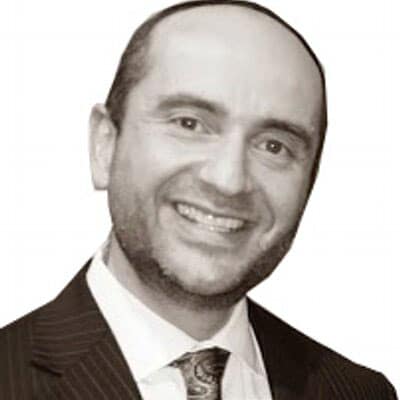 Photo by MikeCherim/Getty Images
Photo by MikeCherim/Getty Images A year ago, I traveled to Israel for a meeting with more than 30 Jewish leaders and activists at the invitation of Israeli President Reuven Rivlin. The agenda of our two-day mini-conference was to discuss a problem that increasingly is threatening the future of Jewish identity and of the State of Israel: the increasing divide among different groups of Jews, particularly but not exclusively over the subject of Israel and the direction it has taken under its current government.
The meeting sponsor was a group called Our Common Destiny, funded by the Genesis Philanthropy Group. This family of foundations was founded by Russian Jewish oligarch Mikhail Fridman, a proud Jew and strong supporter of Israel despite the fact he isn’t Jewishly observant and didn’t receive any meaningful Jewish education.
Some years ago, the Genesis Philanthropy Group came up with the idea of the Genesis Prize — a kind of Jewish Nobel Prize — described on its website as follows: “The Genesis Prize fosters Jewish identity, inspires Jewish pride, and strengthens the bond between Israel and the Diaspora. The annual one-million-dollar award celebrates Jewish talent and achievement by honoring individuals for their professional accomplishments, commitment to Jewish values, and contribution to improving the world.”
The first Genesis Prize laureate was international businessman and former New York Mayor Michael Bloomberg (2014); the second was Hollywood actor Michael Douglas (2015); the third was violinist Itzhak Perlman (2016) and so on. Then, in 2018, the prize committee nominated Oscar-winning actress Natalie Portman to receive the prize. Initially, she accepted the honor, but when she heard that Israel Prime Minister Benjamin Netanyahu was going to be presenting the prize, she abruptly pulled out, citing her “distress” at recent events in Israel.
To say that Fridman was shocked by this development is an understatement, and it was as a direct result of Portman’s public snub of the Genesis Prize that he decided he wanted to launch a project to prevent such a thing from ever happening again. This was the catalyst that led to the launch of Our Common Destiny.
The question we need to ask is this:
What exactly is it we have in common to the exclusion of anything that might keep us apart?
But the question we need to ask is this: What exactly is it we have in common to the exclusion of anything that might keep us apart? And after we have found that “thing,” how do we use it as a platform to keep us together in every circumstance, so we can be strong together rather than weaker as a result of being a disparate collection of unconnected parts?
On Yom Kippur, our primary task is to reconnect to the Jew in us, to drop everything else because it is the “Jew” inside of us that we all have in common, and it is that which we need to put front and center, to the exclusion of anything else that might keep us apart. The Jew inside of us is the platform we can use to keep us united in all circumstances, making us strong together rather than a discordant group.
That’s why on Oct. 7, together with a number of dear friends and partner organizations, I will be leading the first International Succah Hop, during which we will visit sukkahs all over the world via a streaming platform so each of us can connect with Jews around the world and see how Jews celebrate Sukkot in locations including Sydney; Mumbai, India; Abu Dhabi, United Arab Emirates; Dubai, United Arab Emirates; Jerusalem; London; Paris; Kampala, Uganda; Maputo, Mozambique; Gibraltar; Casablanca, Morocco; Rio de Janeiro; Bermuda, New York, Miami and, of course, Beverly Hills.
I truly hope you will join me — and that, after this Yom Kippur, none of us will remain unknown as a Jew ever again. If that is the one benefit we can all draw from the COVID-19 crisis, let us embrace it with all of our hearts, and thank God for the opportunity.
Rabbi Pini Dunner is the senior spiritual leader at Beverly Hills Synagogue, a member of the Young Israel family of synagogues. For details of the time and login for the International Succah Hop, email Carly Einfeld: carly@yinbh.org.























 More news and opinions than at a Shabbat dinner, right in your inbox.
More news and opinions than at a Shabbat dinner, right in your inbox.